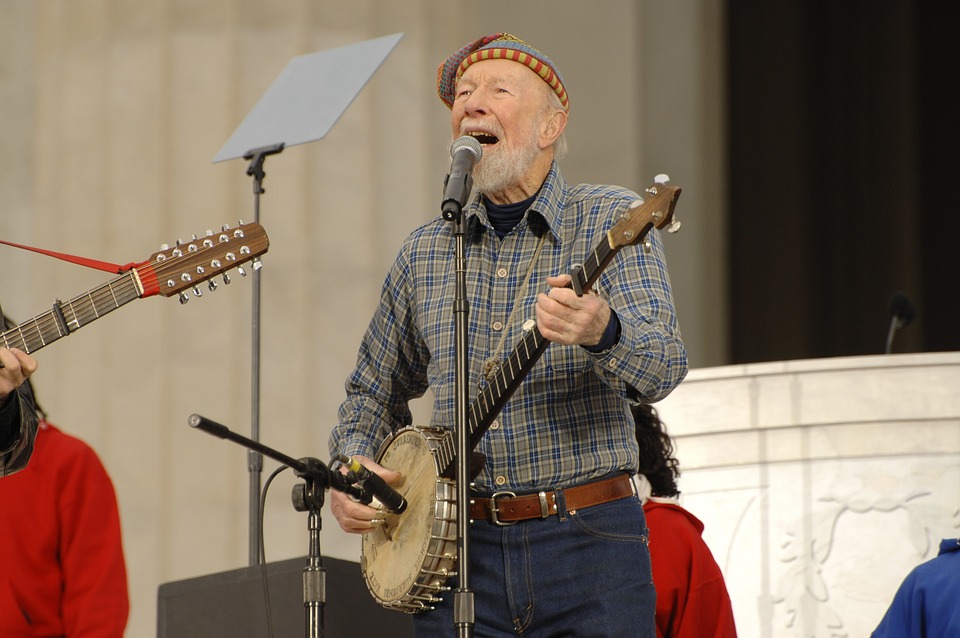The Folk Music Movement: A Brief Overview
The folk music movement of the 1960s was a cultural revolution that gave voice to the struggles and aspirations of a generation. From the streets of Greenwich Village to the stages of music festivals, folk music became a powerful medium for social commentary and political activism. At the heart of this movement were iconic figures like Bob Dylan and Joan Baez, who used their music to challenge the status quo and inspire change.
Bob Dylan: The Voice of a Generation
Bob Dylan, born Robert Zimmerman in 1941, emerged as a powerful force in the folk music scene in the early 1960s. With his distinctive voice and poetic lyrics, Dylan quickly became a voice of his generation. His songs spoke to the struggles of the working class, the injustices of war, and the power of love and hope.
Dylan’s breakout album, “The Freewheelin’ Bob Dylan,” featured iconic tracks like “Blowin’ in the Wind” and “The Times They Are a-Changin’,” which became anthems of the civil rights movement and the anti-war movement. Dylan’s music captured the spirit of the times, and his impact on popular music was profound.
Bob Dylan’s Influence on Folk Music
Dylan’s music revolutionized the folk music genre, infusing it with a new sense of urgency and relevance. His raw, emotional lyrics and powerful vocals inspired a new generation of musicians to use their art as a platform for social change. Dylan’s influence extended far beyond the folk music scene, shaping the trajectory of popular music for decades to come.
Joan Baez: The Queen of Folk
Joan Baez, known as the “Queen of Folk,” was another iconic figure in the folk music movement. With her angelic voice and unwavering commitment to social justice, Baez became a symbol of hope and resistance. Her music addressed issues like civil rights, war, and environmentalism, inspiring countless fans to take action and make a difference.
Baez’s music was deeply personal and introspective, reflecting her own experiences and beliefs. Her haunting renditions of traditional folk songs, as well as her original compositions, touched the hearts of audiences around the world. Baez’s performances were often accompanied by messages of peace and unity, making her a beloved figure in the folk music community.
Joan Baez’s Legacy
Joan Baez’s impact on the folk music movement cannot be overstated. Her powerful voice and unwavering commitment to justice and equality inspired countless individuals to stand up for what they believe in. Baez’s legacy continues to resonate today, as her music remains a source of comfort and inspiration for a new generation of activists and artists.
The Legacy of the Folk Music Movement
The folk music movement of the 1960s may have come and gone, but its legacy lives on in the hearts and minds of millions. Bob Dylan, Joan Baez, and other iconic figures of the era paved the way for future generations of musicians to use their voices to speak truth to power. The spirit of protest and social change that defined the folk music movement continues to inform and influence the music of today.
From protest songs to love ballads, the folk music movement of the 1960s remains a powerful reminder of the power of music to bring people together and inspire change. As we look back on the legacy of Bob Dylan, Joan Baez, and other iconic figures of the era, we are reminded of the importance of using our voices to stand up for justice and equality.
In Conclusion
The folk music movement of the 1960s was a cultural revolution that gave voice to the struggles and aspirations of a generation. Bob Dylan and Joan Baez emerged as iconic figures in this movement, using their music to challenge the status quo and inspire change. Their influence on popular music and social activism continues to resonate today, reminding us of the power of music to bring people together and inspire positive change.

Leave a Reply